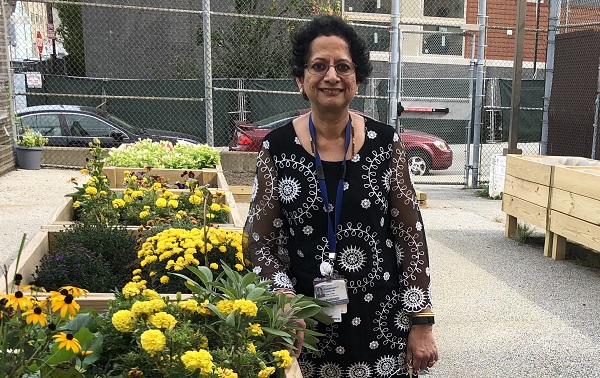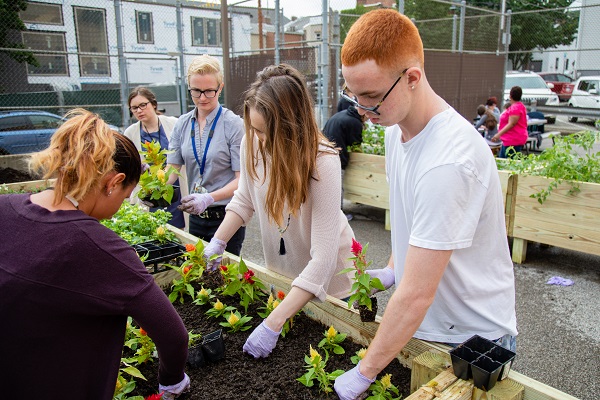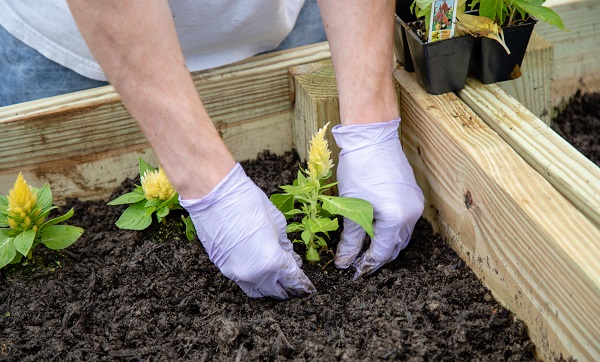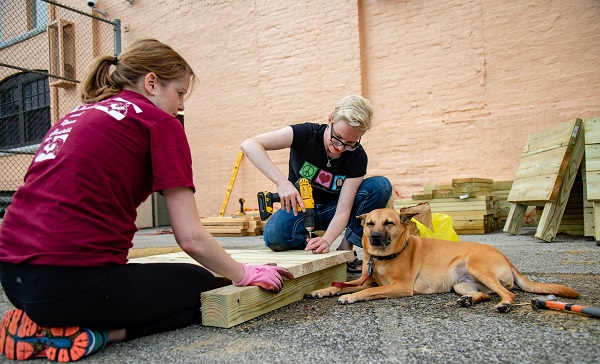
Kidsburgh Hero: Dr. Tumuluru and her Mindfulness Garden
The raised garden beds filled with colorful flowers and fresh vegetables create a safe space for Mady, 17, as she receives psychiatric treatment for mood disorders, anxiety and depression.
Inside the Mindfulness Garden, Mady waters bright gold and soft purple marigolds, mums and asters and monitors the growth of spinach, kohlrabi, chard and Brussels sprouts.
As a troubled world spins around her, the garden helps Mady to stay grounded and focused during treatment.
“When I’m out there, it’s just me and the garden,” she says.

The Mindfulness Garden was the brainchild of Dr. Rameshwari Tumuluru, medical director of the Adolescent and Partial Intensive Outpatient Program (IOP) at UPMC Western Psychiatric Hospital. Her idea was to turn a “bland, concrete area” into a space filled with flowers, vegetables and herbs that would allow patients to practice mindfulness in a meaningful way.
“The impact of all of this is calmness,” Dr. Tumuluru says.
The kids involved in the Western Psych program, from ages 12 to 18, are often dealing with some pretty tough issues. The IOP program serves as a hospital diversion, where kids with multiple diagnoses, including depression, anxiety, trauma and eating disorders, can get help through outpatient treatment rather than a full-time hospital stay.
Therapy is a large part of the treatment, in which a core component is mindfulness.
“Mindfulness is a quality of attention,” says Eric Stern, a primary clinician at the UPMC facility. “It’s paying attention to the present and being in the moment without judgment.”
The Mindfulness Garden was created as a way to help patients use mindfulness as a tool, Dr. Tumuluru says. This is especially important for someone under stress, when the instinct is to run, fight or withdraw. Taking a moment to breathe and calm down, almost like a timeout, helps the body reset. The garden is a perfect place to do this – to learn to stay calm and in the moment.

In the garden, kids can calmly experience all five senses: smelling the fresh mint leaves, hearing the sound of water rushing through the hose, touching the soft petals on the flowers, eating the lettuce and seeing all of the colors.
“You’re grounding yourself in reality and the garden is a great place to teach that,” Dr. Tumuluru says. “Without really realizing it, they’re touching stuff, they’re feeling things and they’re able to stay in the moment and for a minute they can kind of calm their body and mind so that they can press the reset button, so to speak, so they can regroup and actually use the skills we’re teaching them.”
Other benefits have been noted as well: For kids suffering from depression, the garden helps break the monotony and get them into a new space, which can sometimes be difficult. Kids with eating disorders can eat in a space where there’s no judgment.

Dr. Tumuluru is quick to point out that the program’s multidisciplinary team plays a major role in the success of the garden. The garden, funded by an $8,000 grant from The Beckwith Institute, was built earlier this summer with the help of staff members, some who brought their spouses and dogs along to help.
“The staff has been awesome in terms of supporting this endeavor,” she says. “The garden is not mine. It does not belong to me. This is a community effort and it is a community enterprise because it supports a lot of people and efforts in this building.”